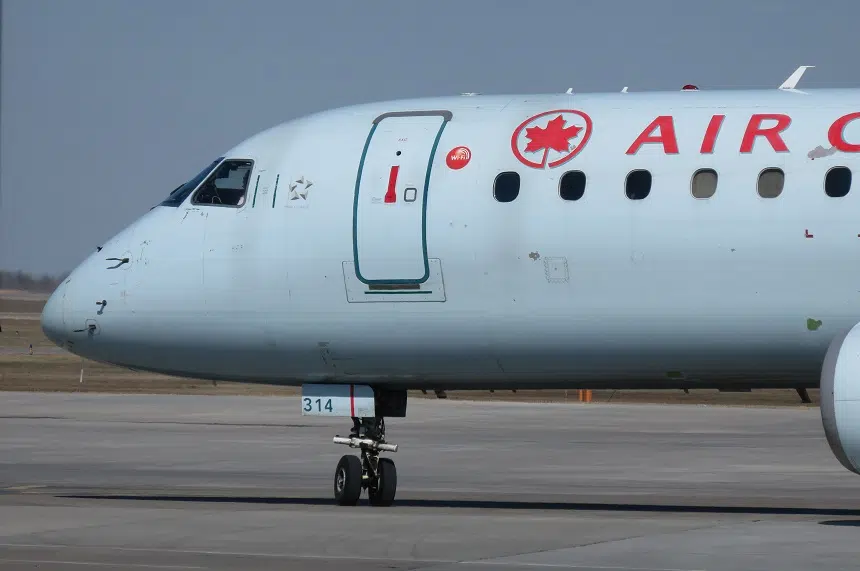A complaint lodged against Air Canada has asked a government watchdog to review the airline after its decision to stop flights between Saskatoon and Calgary.
Jason Aebig, the CEO of the Greater Saskatoon Chamber of Commerce, said the chamber has asked Canada’s Competition Bureau to investigate and ascertain why Air Canada decided to pull its planes off a flight route that has been profitable and in strong demand for the past three decades.
Aebig said that “business decision” is one he’s been trying to understand.
He said that Air Canada, as a privately held company, is accountable to its shareholders and board of directors. No political solution is available for the problems the airline has created for Saskatchewan travellers, who now face higher prices as a result of reduced choice for how to reach their destination.
“From our point of view, really the best and only option was to seek a review by the regulator,” Aebig said, calling it something that Air Canada’s board, shareholders and executive team “cannot ignore in the months ahead.”
“If Air Canada is unwilling to explain its decision to its customers and shareholders, it can explain its decision to its regulators,” Aebig said.
In an email, CJ Dushinski, vice-president of business development and service quality with the Saskatoon airport, said the complaint was made solely by the Saskatoon Greater Chamber of Commerce and the airport was not consulted or notified in advance and “is unable to comment.”
She added in another message that WestJet has announced a further increase in service between Saskatoon and Calgary beginning in February to help accommodate passengers travelling to Calgary, though the airport is still awaiting the updated schedule for confirmation.
The 11-page complaint outlines the frustrations submitted on behalf of the chamber, and asks the bureau to determine whether there has been collusion between Air Canada and WestJet.
Aebig said this is something that is very difficult to determine — whether express or passive agreement took place between airlines to each pursue only certain parts of the air carrier market while leaving other parts of the market available to each other. Either way, Aebig suggested that public choice has been harmed.
This is a problem in an oligopolistic airline industry such as what exists in Canada, Aebig said.
All the chamber has been able to determine with certainty is that route changes last year suggest Air Canada and WestJet both took steps to soften competition in the airline industry.
“Even if it falls short of an agreement between the airlines, it amounts to what is called an abusive dominance by the two main carriers and, in particular, Air Canada,” said Aebig, referring to an act that is intended to harm competition and improve a company’s own position in the market.
If some sort of agreement was found to be reached, it could be contrary to the conspiracy provisions or the civil competitor collaboration provisions of the Competition Act.
While the Air Canada decision has yet to be announced as a permanent stoppage of flights between Saskatoon and Calgary — as well as Regina and Calgary — Aebig said it is time for regulators to get involved in the decisions airlines seem to be making quickly that have enormous impacts on customers.
He said air carriers have been making “announcements that drop out of the sky” that happen without proper consultation and leave customers like businesses and travellers in the lurch.
“And as ‘responsible’ companies, they have a responsibility to be more accountable to the travelling public and to the taxpayers who they go to regularly for bailouts and bankruptcy protection,” Aebig said.
Since being announced Tuesday morning, Aebig said the chamber’s complaint has captured the attention of the industry, as well as the public and business community who have grown tired of being disrespected and disregarded by the decisions of airlines.
“All of these decisions have hit very hard,” Aebig said.
He hopes the complaint will be investigated, set the record straight about Air Canada’s decision to terminate its Saskatchewan flights to Calgary, and put pressure on Air Canada executives and directors to “rethink their decision as a responsible company” and revisit what he called their “shortsighted” decision.







